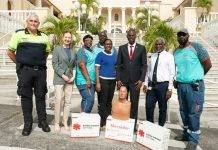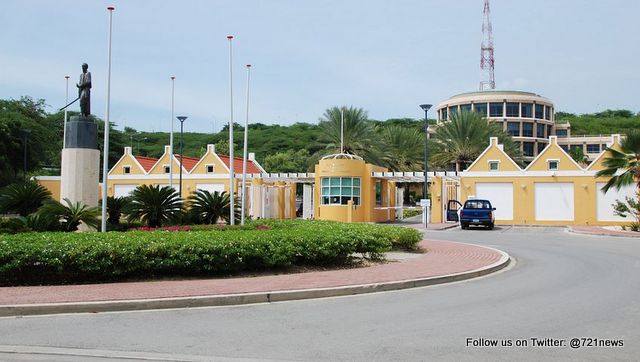Willemstad/Philipsburg – Inflation rose steeply across the monetary union reflecting a sharp increase in international oil and non-oil commodity prices. The rise in non-oil commodity prices was driven by, among other things, supply chain disruptions and soaring transport costs amid the COVID-19 pandemic, Centrale Bank van Curaçao en Sint Maarten (CBCS) president Richard Doornbosch explained in the CBCS’ second Quarterly Bulletin of 2021. Given the countries’ high dependence on imports, inflation in Curaçao and Sint Maarten is to a great extent imported.
Therefore, the hike in international commodity prices is passed through into local prices and, hence, reduces purchasing power. Average consumer prices rose sharply by an estimated 3.9% in Curaçao and 4.0% in Sint Maarten. Particularly low-income households, which spend a significant share of their income on food, are affected.
“The question then arises whether under the current situation minimum wages should be at least adjusted for inflation”, Doornbosch stated.
“Supporters of a minimum wage system argue that it serves an important distributional purpose by providing a basic standard of living for workers. Also, minimum wages reduce poverty, and protect workers against underpayment. Opponents of minimum wages, on the other hand, argue that it increases unemployment and therefore poverty, and can be damaging to business”, Doornbosch pointed out.
Based on economic theory, one can provide arguments in favor of both supporters and
opponents of a minimum wage system. So far, most literature on the impact of minimum wages has been focused on advanced economies, while little attention has been paid to the effects of minimum wage systems on small and developing economies such as Curaçao and Sint Maarten.
“Therefore, CBCS has started a research project to quantify the economic effects of the minimum wage system in Curaçao1 ”, Doornbosch said.
“Research on the impact of minimum wage systems indicates, however, that minimum wages have not only an effect on the employment of workers, but also on their wages, on-the-job training, prices of goods and services, the distribution of income, and welfare”, Doornbosch explained. “Hence, when considering increases in minimum wages, all these factors should be taken into account. In addition, 1 Due to a lack of data regarding the economy of Sint Maarten, the research will start with Curaçao only.
evidence suggests that the negative effects of raising minimum wages tend to be stronger in times of recession and economic crises due to increased financial pressure on employers and employees”, he continued.
“Under the current circumstances where Curaçao and Sint Maarten are recovering from a deep economic contraction with high unemployment, an increase of minimum wages to compensate the current surge in consumer prices should therefore be prudent given the challenging environment businesses and workers face”, the CBCS-president concluded.
The complete text of the Report of the President and the second Quarterly Bulletin of 2021 can be viewed on the CBCS website at www.centralbank.cw under the Publications section.






























